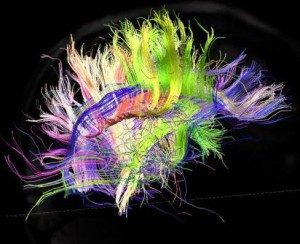12 May 2014. Lysosomal Therapeutics Inc., a start-up developer of therapies for neurodegenerative disorders in Cambridge, Massachusetts, raised $4.8 million in seed financing, the enterprise’s initial operating funds. The company was begun by and is based on the research of Dimitri Krainc, a neurologist at Harvard Medical School and Massachusetts General Hospital in Boston.
Atlas Venture, also in Cambridge, led the financing, with participation by Hatteras Venture Partners, Orion Equity Partners, and several angel investors. Atlas Venture specializes in early-stage investments in life-science enterprises. Venture divisions of three pharmaceutical companies also participated — Lilly Ventures, Sanofi-Genzyme BioVentures, and Roche Venture Fund — as well as Partners Innovation Fund, the investment arm of Partners Healthcare, the parent organization of Mass. General and other Boston hospitals.
Krainc’s lab at Mass. General investigates the accumulation of mutant proteins that occur in several neurodegenerative diseases, such as some forms of Gaucher and Parkinson’s disease. Krainc and colleagues, including company co-founder (and former lab postdoc) Joseph Mazzulli, study processes that degrade the functioning of lysosomes, the parts of cells that digest and clear these aberrant proteins. Lysosomal Therapeutics focuses on this common feature of neurodegenerative diseases as a promising avenue for development.
Gaucher disease is a rare condition occurring in 1 in 50,000 to 1 in 100,000 people, but is more common (1 in 500 to 1,000) with people of Eastern European Jewish descent. The most common form of Gaucher disease, type 1, causes enlargement of the liver and spleen, anemia, and bone-related problems, such as pain and fractures. Types 2 and 3 of Gaucher disease occur less frequently, but cause problems in the central nervous system, marked by symptoms such as abnormal eye movements, seizures, and brain damage.
Parkinson’s disease is a progressive disease of the central nervous system and affects many more people than Gaucher disease, more than 1 million in North America and some 4 million worldwide. Symptoms often begin as tremors or shaking in limbs, but can advance into psychiatric conditions, including depression and hallucinations.
Research so far traces lysosomal storage disorders to mutations in the gene for glucocerebrosidase, also known as GBA or GCase, which are linked to Gaucher and Parkinson’s disease. Studies done by Krainc and colleagues indicate increased activity of GCase in neurons of Gaucher or Parkinson’s disease patients can help normalize their lysosomal storage functions.
Lysosomal Therapeutics plans to develop a molecular therapy that stimulates GCase, as a treatment for Gaucher and Parkinson’s disease. The company is also investigating other lysosomal enzyme deficiencies as potential therapy targets.
Read more:
- Alzheimer’s Brain Stimulation Implants Completed for Trial
- Daiichi Sankyo, UCSF Partner on Neurodegenerative Disorders
- Fox Foundation Proposes Improving Trial Patient Recruitment
- New Clinical Trial Testing Drug for Huntington’s Disease
- Neurotherapies Require Collaboration, Team Science, Big Data
* * *


 RSS - Posts
RSS - Posts
You must be logged in to post a comment.